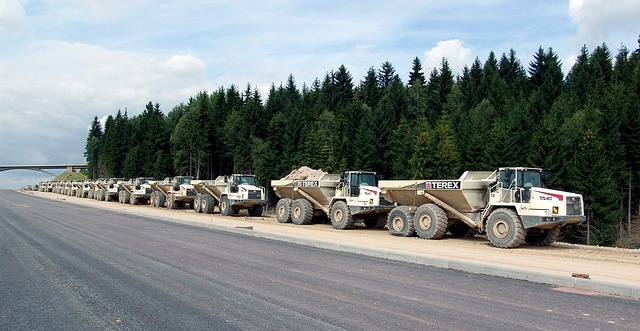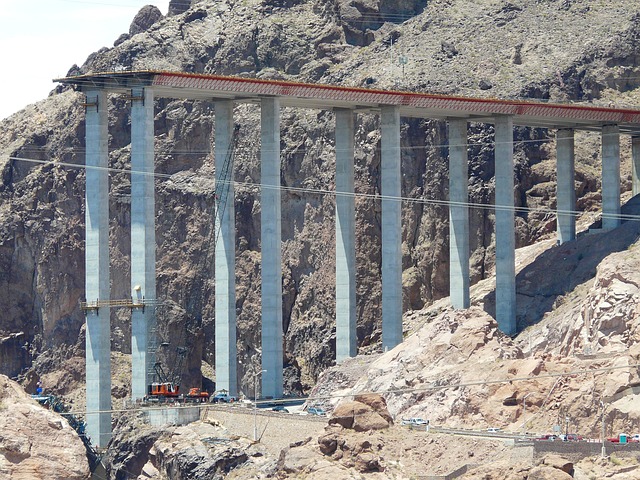Road Construction Contractors: Your Guide to a Smooth Project Journey
In the fast-paced world of infrastructure development, road construction contractors play a pivotal role in shaping the landscape of our communities. Whether it’s a small residential street or a massive highway project, the expertise and professionalism of these contractors are crucial in ensuring timely and effective completion. This guide aims to help you navigate the complexities of working with road construction contractors, empowering you with knowledge for a smooth project journey.
Understanding the Role of Road Construction Contractors
Road construction contractors are specialized professionals responsible for a range of tasks involved in constructing, repairing, and maintaining roads. Their services encompass the full lifecycle of road construction projects, from initial planning and surveying to the final paving and landscaping. Key areas of their expertise include:
- Site Preparation: This involves clearing the land, excavation, and creating a stable base for the road.
- Material Procurement: Contractors are responsible for sourcing high-quality materials like asphalt, concrete, and aggregates, which are essential for durable road surfaces.
- Paving: The paving process requires precision and the right equipment to ensure smooth surfaces that adhere to engineering standards.
- Maintenance: Post-construction, contractors may offer ongoing maintenance services to keep roads in optimal condition.
Choosing the Right Road Construction Contractor
Selecting the right contractor can significantly impact the success of your construction project. Here are some vital factors to consider:
Experience and Expertise
Look for contractors with a proven track record in road construction. Their experience in similar projects can provide insights into their capabilities. Requesting references and reviewing completed projects can help gauge their expertise.
Licensing and Certification
Ensure that the contractor possesses the necessary licenses and certifications to operate in your region. This ensures that they comply with local regulations and standards, which can significantly reduce risks during the project.
Insurance and Bonding
Verify that the contractor carries adequate insurance coverage and bonding. This protects you from potential liabilities arising from accidents, damages, or project delays. Lack of proper insurance can lead to significant financial challenges should issues arise.
Project Management Capabilities
Effective project management is essential for keeping your construction timeline on track. Inquire about the contractor’s management structure, including who will oversee the project and how they handle scheduling, communication, and public relations.
Cost Estimates
Request detailed estimates from potential contractors. Be wary of estimates that appear significantly lower than others, as they may indicate lower quality materials or rushed work. A comprehensive estimate should break down labor, materials, equipment, and any additional costs.
The Road Construction Process
The process of road construction involves several phases that must be carefully managed to ensure quality and efficiency:
Planning and Design
Before any physical work begins, thorough planning and design are essential. This phase involves:
- Conducting environmental assessments to evaluate the project’s impact.
- Working with civil engineers to establish road specifications that meet local and federal standards.
- Creating a detailed timeline and budget plan outlining all necessary resources.
Site Preparation
This step includes clearing vegetation, leveling the land, and setting up drainage systems to prevent water accumulation. Proper site preparation is crucial in reducing future road maintenance needs.
Base Installation
Once the site is prepared, a strong base layer of gravel or crushed stone is installed. This base is critical for providing structural support to the road and ensuring longevity.
Paving
Following the base installation, the paving process begins. Various materials can be used here, with asphalt and concrete being the most common. Each material has its benefits, and the choice will depend on factors such as expected traffic load and climate conditions.
Final Touches
After paving, final touches include adding road markings, setting up signage, and installing any necessary drainage or curbing systems. These elements are key to ensuring road safety and functionality.
Common Challenges in Road Construction
Even with a skilled contractor, road construction can present various challenges. Understanding these potential pitfalls can help mitigate their impact:
Weather Conditions
Inclement weather can delay construction timelines and affect material quality. Contractors often have protocols in place to adapt to different weather conditions, ensuring minimal disruption.
Unexpected Site Conditions
Underground utilities, poor soil conditions, or environmental factors may not be evident during planning. These unforeseen challenges can lead to changes in cost and schedule. Having contingencies in place is essential for successful project completion.
Regulatory Compliance
Ensuring compliance with local, state, and federal regulations is critical. Delays can occur if permits or inspections are not managed efficiently. A reputable contractor should have experience navigating the regulatory landscape.
The Importance of Communication
Effective communication between the contractor and stakeholders is crucial throughout the construction process. Regular updates on progress, challenges encountered, and changes in plans help foster trust and clarity. It is beneficial for project managers to establish clear lines of communication before the project begins, ensuring everyone involved is on the same page.
Sustainability in Road Construction
As environmental concerns become increasingly significant, many road construction contractors are adopting sustainable practices. This can include:
- Using recycled materials in road construction to minimize waste.
- Implementing eco-friendly practices during the construction process.
- Considering the long-term environmental impact of road designs and the potential for green spaces.
Sustainable road construction not only benefits the environment but can also lead to long-term cost savings through reduced maintenance and increased durability.
Conclusion
Working with road construction contractors doesn’t have to be a daunting experience. By understanding the roles and processes involved, as well as the challenges that may arise, you can navigate your project with confidence. From selecting the right contractor to ensuring that your project adheres to timelines and budgets, following this guide can help you achieve a successful road construction project that meets the needs of your community.
With the right knowledge and communication, your road construction journey can be as smooth as the asphalt laid on your new road.


